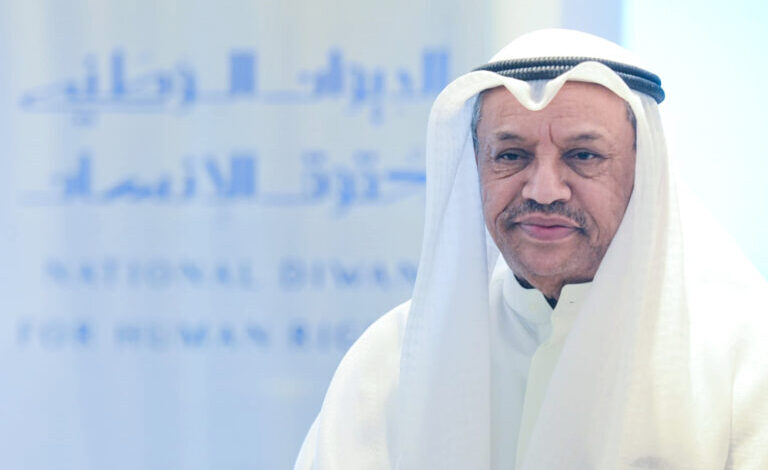World marks 75th anniversary of Universal Declaration of Human Rights

The world marks tomorrow (December 10) the 75th anniversary of the adoption of the most significant international legal document of human rights: Universal Declaration of Human Rights (UDHR).
The UDHR is a milestone document in the history of human rights. The declaration was proclaimed by the United Nations General Assembly in Paris on 10 December, 1948 (General Assembly resolution 217 A) as a common standard of achievements for all peoples and all nations.
The declaration, with all its 30 articles, is the basis of all laws bearing on human rights, with its first article stating that all human beings are born free and equal in dignity and rights. They are endowed with reason and conscience and should act towards one another within a spirit of brotherhood.
Kuwait, as part of the international order, adopted several texts and articles in its 1962 constitution that comply with the UDHR and related international charters. It has even adopted a set of pieces of legislation, laws, and arrangements that reflect the country’s observation of international commitments in the human rights domain.
In this regard, Chairman of the National Diwan of Human Rights Jassem Al-Mubaraki stressed the importance of the UNDHR to the protection of all people from human rights violations, and spotlighting and addressing relevant challenges.
Speaking to KUNA, he said the international community needs an executive will to apply relevant conventions to what is going on in the Gaza Strip, lamenting that the UDHR, human rights conventions and the United Nations (UN) Charter are not observed due to double standards.
He condemned the Israeli occupation’s aggression on the Palestinian territory as a genocide and war crime against humanity right under the nose of the international community.
He added that human rights are the basic rights and freedoms of all people regardless of any other considerations such as gender, race, religious, language, political opinion, national and social origin, or economic or social situation.
In this context, Kuwait has approved and endorsed a set of international agreements and conventions targeting the elimination of racial discrimination with all its forms and manifestations, he remarked.
Kuwait has consequently enacted a package of laws, legislation and policies pertinent to these international conventions, and has always cooperated with international human rights agencies in order to promote and protect human rights in the country.
Furthermore, Kuwait has always been keen on implementing the UN Sustainable Development Goals (SDGs), which were adopted by the United Nations (UN) in September 2015, and are mainly based on the UN Charter, Universal Declaration of Human Rights (UDHR), and human rights treaties and conventions.
Kuwait’s new development vision is chiefly meant to create an encouraging infrastructure and legislative business environment with human development regulations aiming at establishing values and safeguarding the society’s identity and ensuring justice, political participation and freedoms.
Kuwait also established a permanent national committee for compiling reports and following up on human rights recommendations, chaired by the Ministry of Foreign Affairs and comprising all state bodies.
It, further, created a National Diwan of Human Rights, an independent body supervised by the cabinet and aiming at promoting and protecting human rights, and disseminating the respect of public and private freedoms as per the constitution and international agreements endorsed by the State of Kuwait.
At the international level, Kuwait has emerged as a peace-loving country that defends civilians’ rights, and hosts summits and conferences with a view to supporting needy and affected countries. This has thus earned Kuwait a distinguished status in its relations with the UN, which, consequently, picked Kuwait as a humanitarian hub and the late Amir Sheikh Sabah Al-Ahmad Al-Jaber Al-Sabah as a humanitarian leader.
In the same context, during its non-permanent membership of the UN Security Council between 2018 and 2019, Kuwait did its utmost in the field of human rights, mainly including Resolution 2401 adopted on February 24, 2018, regarding Syria’s ceasefire and humanitarian aid access, along with Resolution 2440 that defined a mechanism for delivering relief aid to Syria. The UNSC also adopted Resolution 2417, which was tabled by the State of Kuwait, the Netherlands, Sweden and Cote d’Ivoire, condemning the starving of civilians as a war tactic and illegal denial of humanitarian access to the civilian population.
As part of its unwavering support for the Palestinian cause and defending the legitimate rights of Palestinians, Kuwait submitted a draft resolution aiming at proving international protection for the Palestinian people, but it was vetoed. In another achievement, the UN General Assembly reelected Kuwait as a member of the Human Rights Council between 2024 and 2028, which comprises 47 member states.
It was first elected during the period from 2011 to 2014.
The membership is mainly based on states’ contribution to promoting and protecting human rights and voluntary undertakings and commitments.
Source: KUNA














